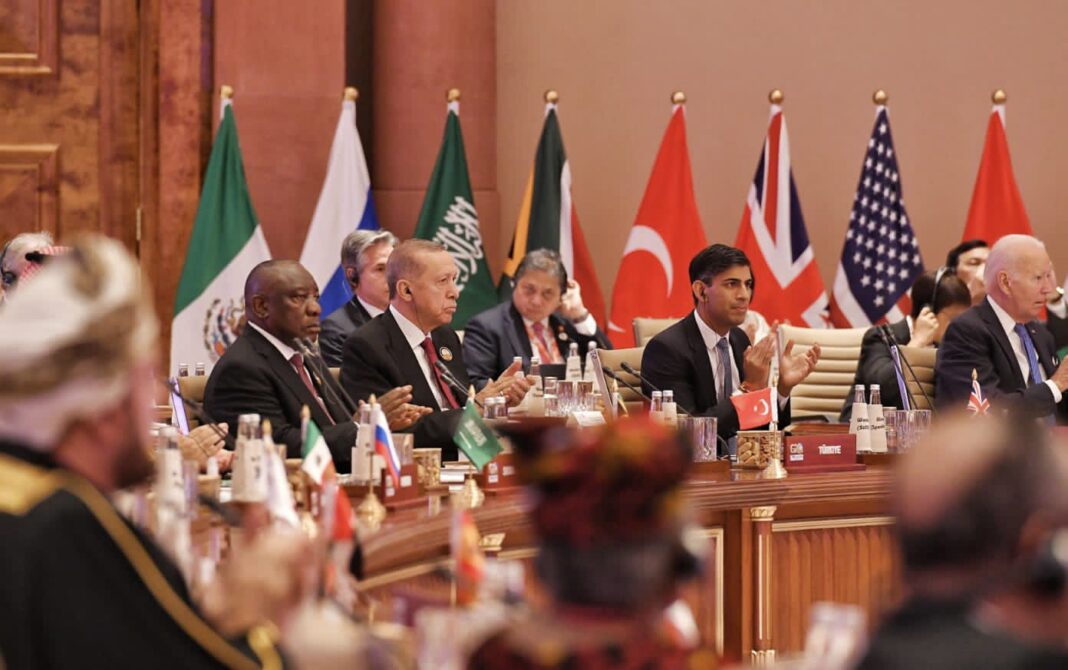Johnathan Paoli
The 2023 G20 Leaders Summit concluded with Indian Prime Minister Narendra Modi handing over the baton to Brazilian President Luiz Inacio Lula da Silva as the next chair of the G20 and a visit to the memorial of Indian independence hero Mahatma Gandhi.
Da Silva will chair next year’s G20 summit with South Africa taking over in late 2024 and the US the year after.
President Cyril Ramaphosa met with US leader Joe Biden, along with the Brazilian and Indian leader on the sidelines of the summit, where matters discussed included strategies of cooperation and building stronger economies.
“As the G20’s current and next three presidencies, we will build on the historic progress of India’s G20 Presidency to address global challenges. In this spirit, together with the World Bank President, we welcome the G20’s commitment to build better, bigger, and more effective multilateral development banks.
“This commitment underscores what we can do, by working together through the G20, to support our people toward a better future,” said the four leaders in a joint statement.
On Saturday, the group adopted a Leaders’ Declaration that avoided condemning Russia for the war but highlighted the human suffering the conflict had caused and called on all states not to use force to grab territory.
President Lula da Silva said in an interview during the Indian Summit, that Russian President Vladimir Putin will be welcome in Brazil next year for the next forthcoming G20 meeting.
This follows the ICC’s arrest warrant issued in March this year, for Putin’s alleged involvement in the war crime of deporting hundreds of children from Ukraine, among others.
Putin has been conspicuously absent from a few international meetings, as countries grapple to balance their obligations to the Rome Statute and their relations with Russia.
Both the 2023 G20 Summit as well as the BRICS Summit held in South Africa, saw Putin designate his attendance to the Foreign Minister, Sergey Lavrov.
In addition, the summit chair announced that the African Union has been added as a permanent member of the G20, making it the 21st member.
The G20 Summit ended with a joint declaration that summarized the main outcomes and commitments of the leaders on various issues, such as the war in Ukraine, the COVID-19 pandemic, the climate crisis, and the global economy.
The summit also featured several bilateral and multilateral meetings between the leaders, where they discussed specific topics of mutual interest and concern, including Prime Minister Modi meeting with the leaders of France, Germany, Netherlands, and the European Union.
Some have criticised the summit for the lack of strong and clear condemnation of Russia’s invasion of Ukraine and the failure to impose sanctions or other measures to pressure Moscow to end the war; a lack of ambition and urgency on tackling the climate crisis and the transition to a low-carbon economy; and a lack of representation and participation of civil society, human rights defenders, and marginalized groups in the summit.
INSIDE POLITICS

